Being in the right place at completely the wrong time used to be a professional blessing, but these days I’m not so sure.
When I was a BBC foreign correspondent, friends would ask where I was planning to visit next so they could avoid going there on holiday because news stories seemed to follow me around the world.
What could possibly happen moving to Miami? (Hurricane Katrina hit there first), or Bangkok? (weeks of violent street protests ended by a military massacre) or Kabul? (Afghanistan was supposedly back on a happy democratic track at the time).
What could possibly happen in Odemira, Alentejo...in a remote rural spot living off the grid, ignorantly?
Fire it seems.
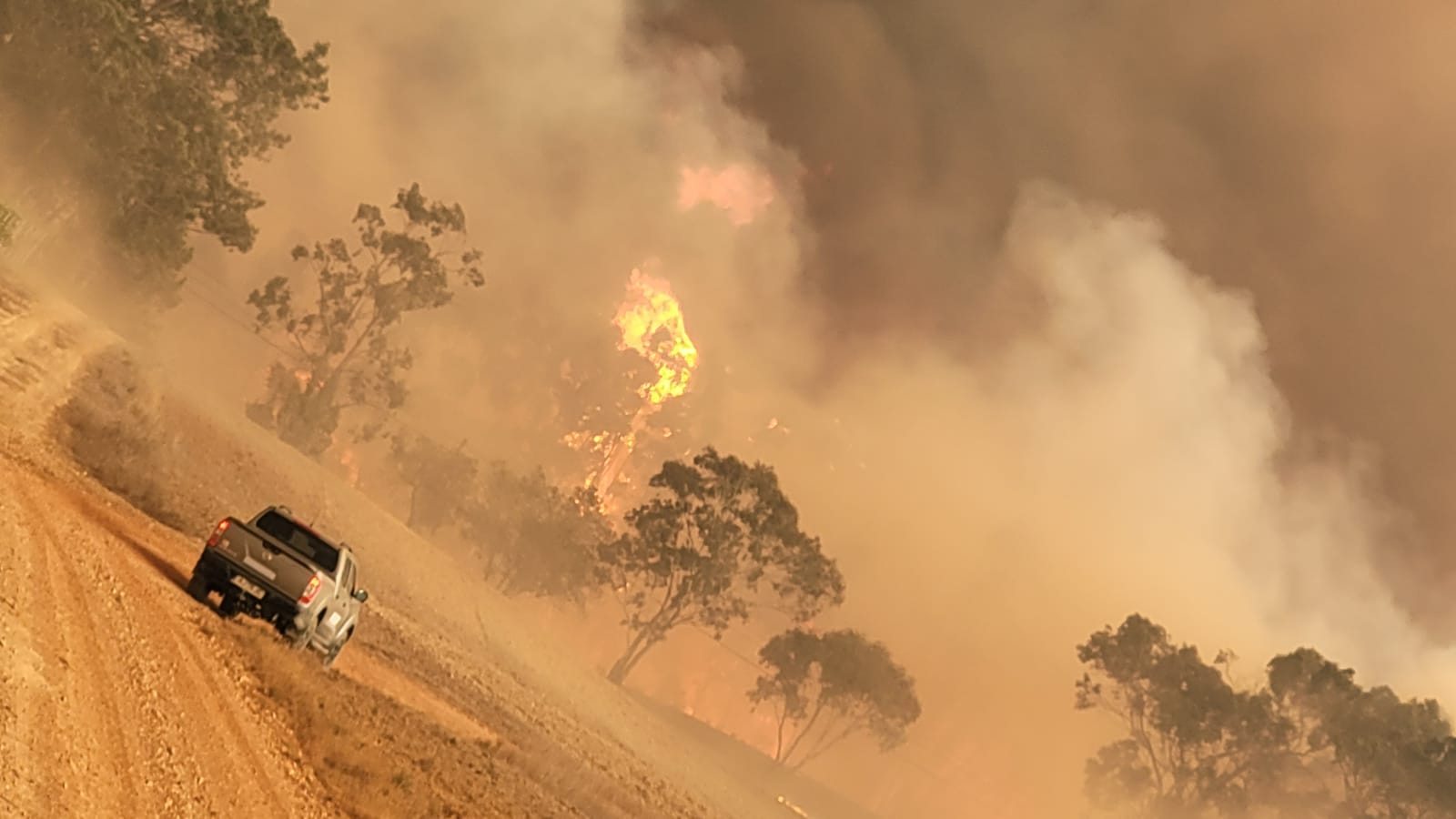
Last year was a huge shock – when fire rushed up the Valley of the Stars burning our land and sending us scattering around with just an hour to choose which worldly possessions to pack into Cassie the Hilux and head for the hills with the dogs.
Fire in the Valley
If you saw a fire heading your way and had less than an hour to bundle together all the worldly possessions you wanted to keep – the ones that could fit in the car alongside one small dog and one very large dog – what would you take? And what would you leave to burn?
So when fire came to Odemira again this week...to the southern edge of our nearest town of São Teotónio...and this time was a large enough blaze to make international news, I began to ask if the gods of news might consider leaving me alone now I’ve left the BBC.
The fire began on Saturday – apparently at a picnic area popular for barbecuing close to the main road – and it quickly spread into narrow valleys of tinder-dry eucalyptus forests.
But it was Monday’s strong easterly winds which brought hot, dry air from Spain and drove the fire towards us.
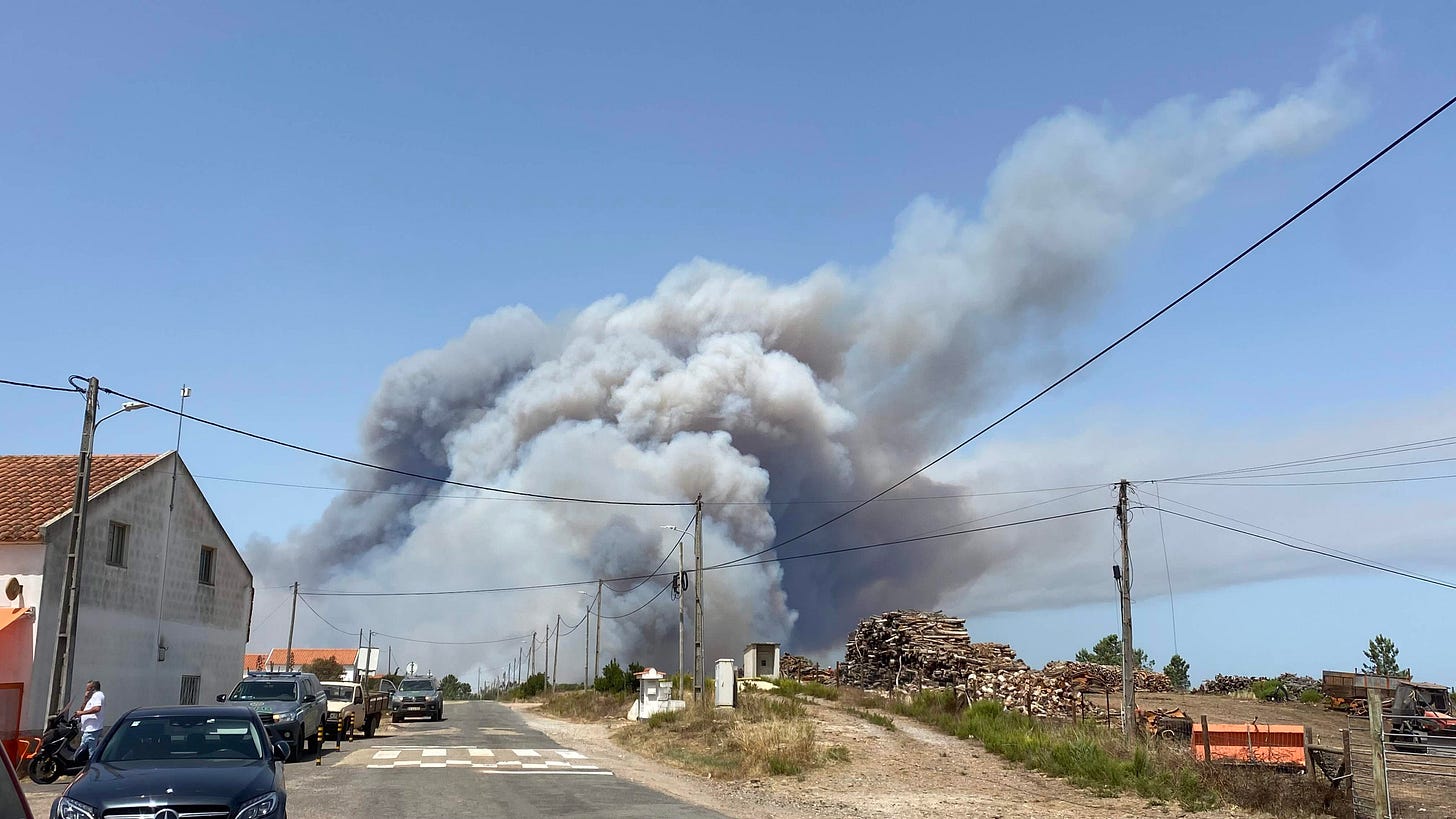
People were evacuated from guest houses and homes as the fire spread out of control and the smoke blotted out the sun. It doubled in size in a few hours.
Dramatic pictures, and a proximity to the holidaymaking spot of the Algarve, gave this story a lot more attention than I expected, and so I was drawn back into the old job, doing live interviews for BBC TV and radio programmes throughout the day.
It’s a popular tourist area in its own right and thankfully our friends who evacuated guests from their Aterra eco-boutique glamping lodge avoided the flames and their place was saved.
Other tourist lodges appear not to have been as lucky.
This week is the Meo Sudoeste music festival – a Portuguese Glastonbury which is held not too far up the coast from us, and for now it’s going ahead as planned.
Fire trucks arrived from all over Portugal, and aircraft have been continuously flying to a nearby reservoir to pick up water to drop on buildings and dowse areas ahead of the fire to try and stop it spreading.
Today we were blessed by calm air, with high temperatures but little wind to drive the fire forward.
Roads are still closed as more than a thousand firefighters spent another day cutting fire breaks with ploughs and trying to contain the flames while they can, and before high winds return.
We discovered an amazing website for monitoring fires from NASA satellite information, but hitting refresh every thirty seconds doesn’t help reduce stress levels.
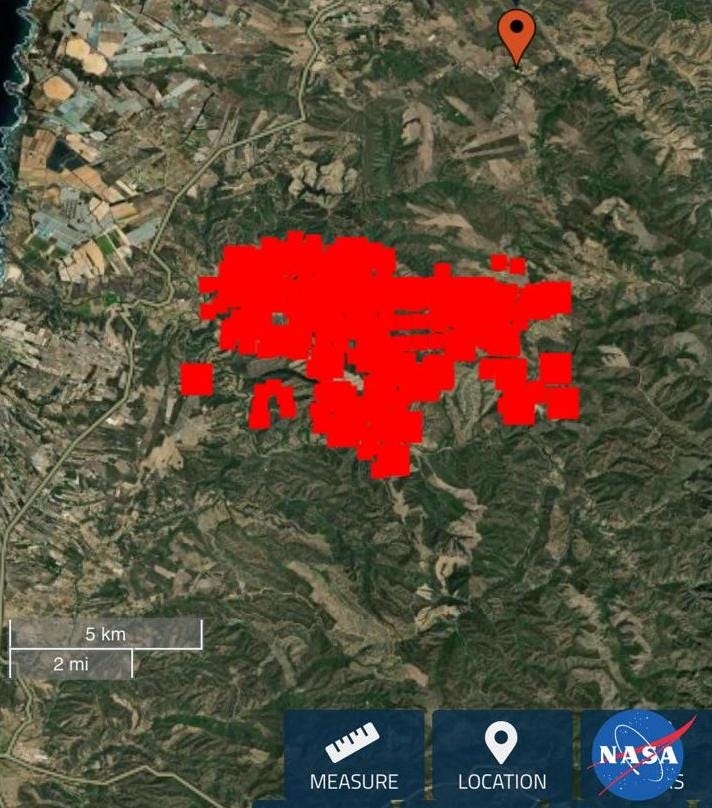
And so we went out and about to see for ourselves where the fire had reached and which way the wind was going. The evenings here are usually calm and so a big red glow on the horizon soon subsided.
The full extent of the damage is hard to know and the threat is still not over – our friends who breed Lusitano horses are closer to the fire and more at risk from the switching wind direction, but if the fire heads down their valley it will come towards us as well. We are all on high alert.
As we watched the satellite map refresh, we feared for the beautiful Vicentino vineyard – one of the biggest producers of Pinot Noir in Portugal and a place we take all our guests.
We know the guys there well and it wasn’t looking good, until I received a message that they had managed to save both the new winery (which only received its first harvested grapes last week) and the vineyards...by fighting the fire themselves.
The trees and fields cleared to build the winery acted as a fire break and helped protect the vineyards.
Forty five members of staff stayed on the land to put out spot fires, dousing vines with water and ploughing fire breaks to protect the farm as the fire closed in.
“With the enormous heat, the eucalyptus trees send burning globes 200m and they start new fires,” said Vicentino and Frupor owner Ole Martin Siem who was critical of the fire brigade for a lack of communication between crews and central command.
“I am frustrated because of the lack of action from the fire brigade and the police,” he said.
“There were three big trucks full of water sitting there all day and they did nothing – we were putting the fires out ourselves.
“We asked why they were not helping and they told us they were waiting for instructions from above and could not help.”
“My frustration is with the bureaucracy and the bad management of the fire,” said the Norwegian grower who has lived and farmed in the area for 50 years.
“When you have a large fire you need good organisation at every level, but fire fighters were admitting there was nothing they could do to help us because they were waiting for instructions.”
A lot of firefighters are volunteers and they have been working tirelessly for the last few days.
Crews arrived from all over Portugal to help, but we also heard criticism last year about the lack of communication between different agencies and crews.
When the fire goes into the eucalyptus or pine nut forests there’s not much they can do except to try and direct it into more open areas where there’s less fuel for the flames – and away from houses which are the firefighters’ priority.
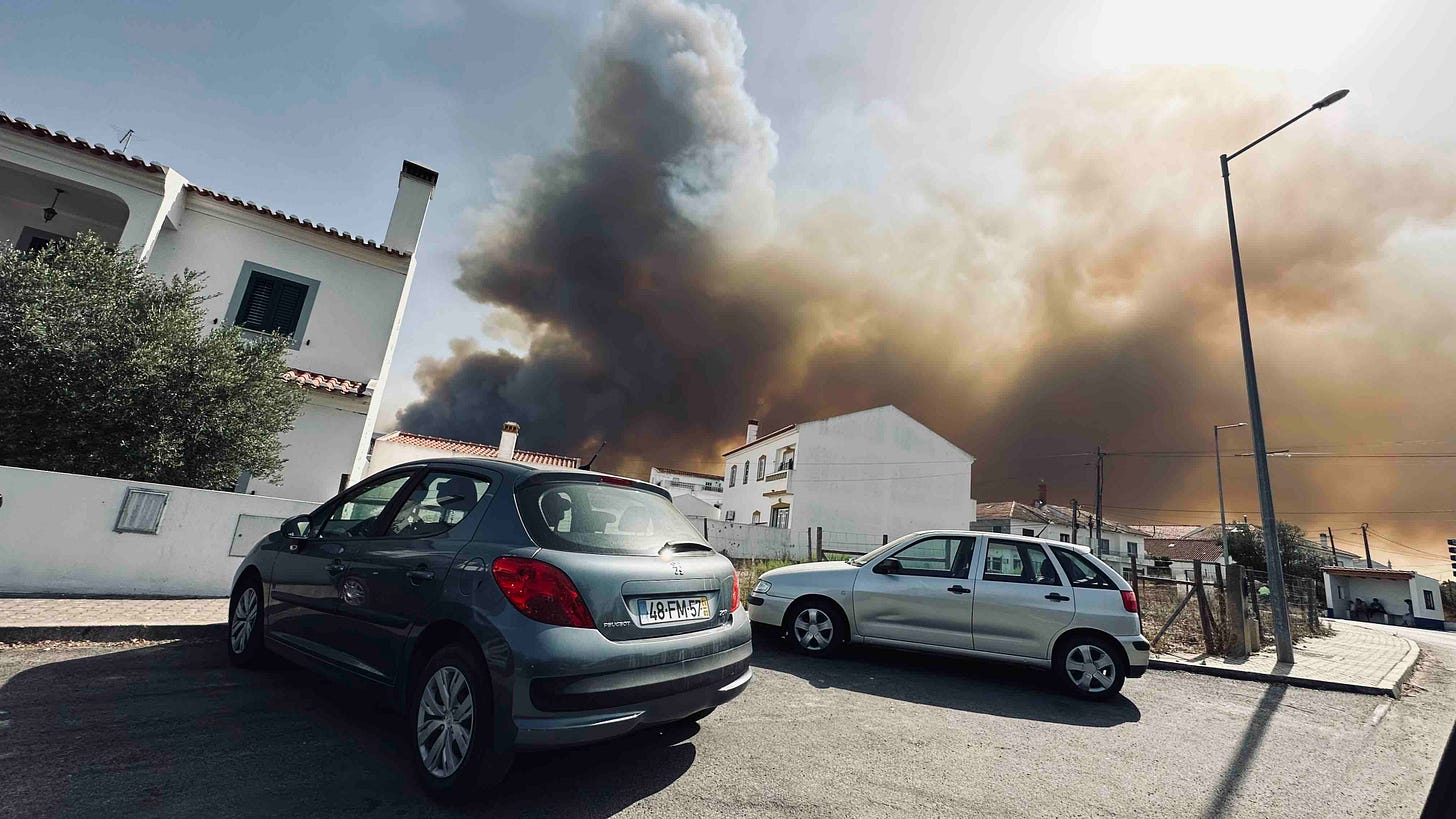
Last year we were very unlucky when fire came up our valley for the first time in a hundred years, but extremely lucky we escaped largely unscathed.
Most big fires rage in the interior of the country – close to the border with Spain where the temperatures are a lot higher.
But again we have been unlucky that a strong east wind arrived in those couple of days before a fire could be brought under control.
It’s another reminder for us to make sure our land is cleared of old branches and leaves, that we have fire breaks in place, no wooden decks – and perhaps that we might need to get some sheep or goats to do some of the work for us.
And if we get grazers we’ll need someone to look after them...and that’s when Vasco the Llama comes along. I’ve always wanted a llama, and what better name for him?
S2:Ep7 - Fire in the Valley
Listen now (11 min) | A scary day in September 2022 as the wind changed, a fire started a few miles away and we had to pack up everything we didn’t want to lose and headed for the hills in the hope there’d be a home to return to… TRANSCRIPT… If you saw a fire heading your way and had less than an hour to bundle together all the worldly possessions you wanted to keep – the ones…
You can listen to every despatch where you get your podcasts - here’s last year’s.
Right now we’re optimistic but we’re vigilant. The black plumes of towering smoke are now a misty layer in the distance, but the buzz of aircraft is a constant reminder it’s not far away and there’s always the risk of new sparks.
If it does come closer to us, we have done this before and know the drill: we know what to grab and throw in the car.
We’ll just have a leave a few things out this time as we have an extra three young cats to accommodate (and they don’t currently get on!).
I don’t think this is the new normal for our part of Portugal, but I think it will be a more familiar occurance across large swathes of southern Europe as temperature records are broken and long periods of drought persist.
And thanks to everyone who’s been in touch to make sure we’re OK.
So far so un-fire-y in Vale das Estrelas...and long may it remain that way.





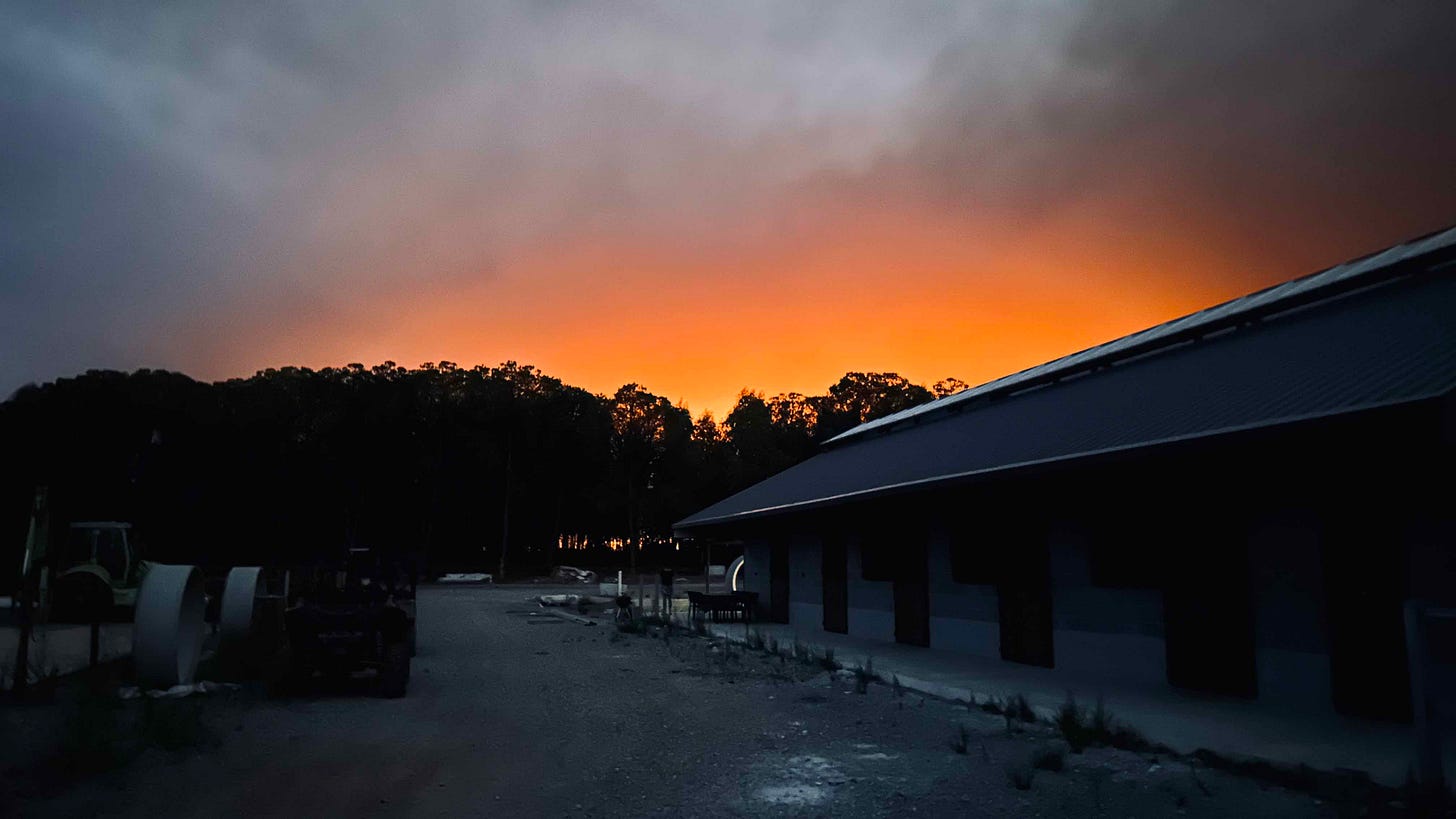
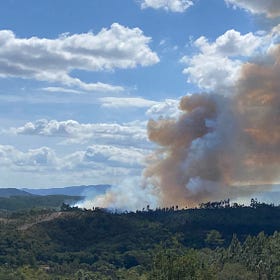
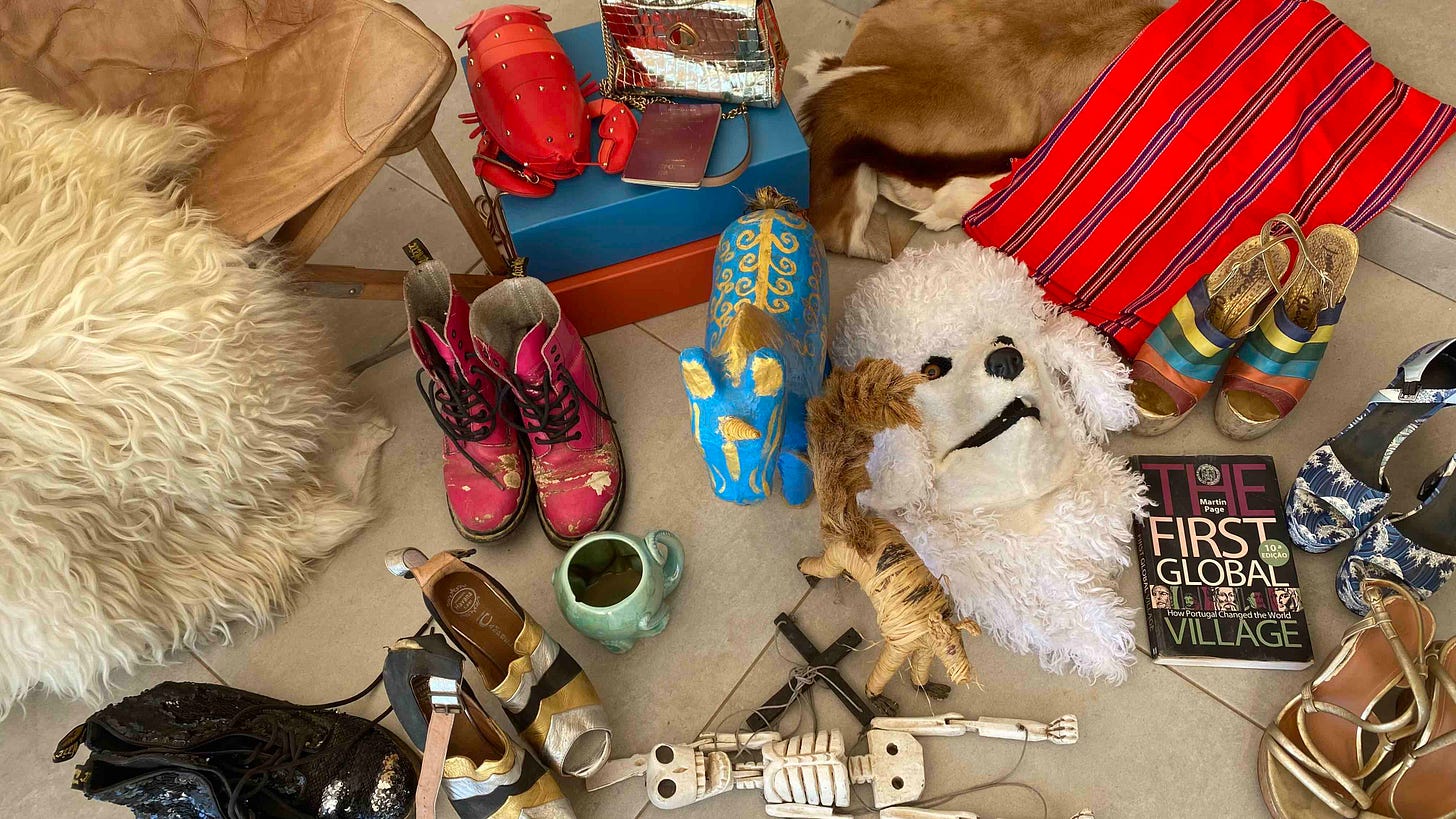
Very glad that you’re all okay. Have a look at Fogos.pt for updates on fires across Portugal. A simple site but gives good info and alerts on each reported fire. Hope that you’re out of immediate danger now that the perimeters of the fire have been contained.
You painted the picture so well. I decided to listen rather than read your update. Stay safe and vigilant!